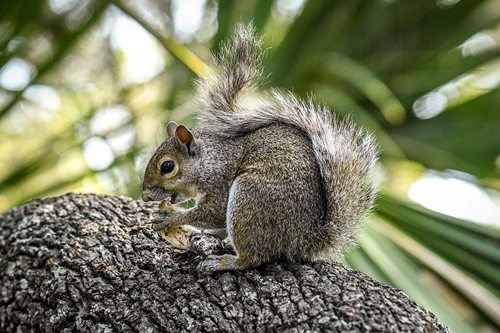No, it is not illegal to kill squirrels in North Carolina under certain conditions, but it is regulated by state wildlife laws. The legality depends on factors such as the type of squirrel, the season, the purpose of the killing, and whether the proper permits and licenses are obtained.
Squirrel Hunting and Wildlife Regulations in North Carolina
Squirrels are classified as small game in North Carolina, and their management is overseen by the North Carolina Wildlife Resources Commission (NCWRC). Killing squirrels is lawful during designated hunting seasons, provided hunters follow state regulations. However, specific restrictions apply based on the species of squirrel, location, and the reason for killing.
1. Squirrel Hunting Regulations
Legal Hunting Seasons
- The most commonly hunted squirrel species in North Carolina is the Eastern Gray Squirrel, which is classified as small game.
- As of 2024, the squirrel hunting season typically runs from early October to late February and from mid-May to early June. Specific dates vary by year and should be confirmed through the NCWRC’s regulations digest.
- Hunters must have a valid North Carolina hunting license and adhere to bag limits, which is usually six squirrels per day.
Species Protection
Certain squirrel species, such as the Carolina Northern Flying Squirrel, are federally protected under the Endangered Species Act and cannot be killed under any circumstances. Violating these protections can result in significant penalties, including fines and imprisonment.
2. Killing Squirrels Outside of Hunting
Nuisance Wildlife Control
Landowners in North Carolina may kill squirrels that are causing property damage or posing a nuisance, but this must be done in compliance with state laws.
- No Permit Required: Killing nuisance squirrels does not typically require a permit if the animal is on your property and causing damage. However, humane methods must be used, and local ordinances may apply.
- Restrictions: The NCWRC strongly discourages the use of inhumane or indiscriminate methods, such as poisoning, which is illegal for wildlife control.
Out-of-Season Killing
Killing squirrels outside of the designated hunting season is generally prohibited unless they pose an immediate threat or nuisance. A special depredation permit may be required from the NCWRC.
3. Federal and State Laws Impacting Squirrel Killing
Federal Protections: Federally protected squirrel species, such as the Carolina Northern Flying Squirrel, cannot be harmed without special permits. Violating federal protections can lead to penalties of up to $50,000 in fines and a year of imprisonment.
State Wildlife Regulations: North Carolina law mandates that hunting and wildlife management be conducted responsibly to avoid unnecessary suffering or harm to non-target species. Hunters must also respect private property boundaries and local firearm regulations.
4. Penalties for Violating Squirrel-Killing Laws
Illegal Hunting or Trapping: Killing squirrels outside of the legal hunting season or without the proper license can result in:
- Fines: Up to $500 for a first offense.
- Loss of Hunting Privileges: Repeat offenders may face license suspension or revocation.
- Criminal Charges: Intentional harm to protected species or unauthorized trapping can lead to misdemeanor or felony charges.
Violations of Federal Protections: Harming federally protected species, such as the Carolina Northern Flying Squirrel, can result in much harsher penalties, including imprisonment and significant fines.
5. Ethical Considerations
The NCWRC encourages ethical hunting practices, including:
- Ensuring clean and humane kills to minimize animal suffering.
- Adhering to bag limits to prevent overharvesting.
- Avoiding killing squirrels unless necessary for hunting, population control, or damage prevention.
Recent Legal Updates (2023-2024)
1. Expanded Education for Hunters
The NCWRC has updated its hunter education programs to include modules on identifying protected squirrel species and ethical wildlife control methods.
2. Increased Penalties for Endangered Species Violations
North Carolina has aligned state penalties with federal standards to deter harm to protected species, such as the Carolina Northern Flying Squirrel.
3. Public Awareness Campaigns
The NCWRC has launched initiatives to educate residents about legal methods for managing nuisance wildlife and the importance of adhering to hunting regulations.
FAQs About Killing Squirrels in North Carolina
Q1. Is it illegal to kill squirrels in North Carolina?
Ans: No, killing squirrels is legal during the hunting season with a valid license. However, killing certain protected species or killing out of season without proper permits is illegal.
Q2. Can I kill a squirrel on my property if it’s causing damage?
Ans: Yes, you can kill nuisance squirrels on your property without a permit, but humane methods must be used, and local ordinances must be followed.
Q3. Are there penalties for killing squirrels illegally?
Ans: Yes, penalties include fines, loss of hunting privileges, and potential criminal charges for harming protected species or violating hunting regulations.
Q4. Can I trap squirrels instead of killing them?
Ans: Yes, trapping squirrels is allowed but must comply with NCWRC guidelines. Relocation of trapped squirrels is discouraged due to risks of disease spread and survival challenges.
Q5. What should I do if I see someone killing a protected species?
Ans: Report the incident to the NCWRC or local law enforcement. Violating protections for endangered species, such as the Carolina Northern Flying Squirrel, is a serious offense.


